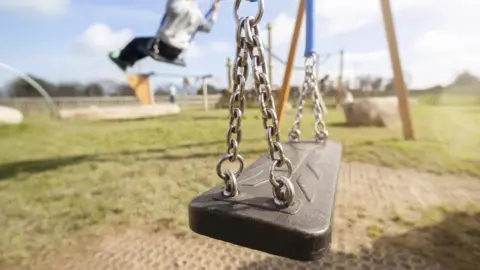Child sex abuse inquiry breaches victim's anonymity
 iStock
iStockThe Independent Inquiry into Child Sexual Abuse has admitted breaching its own procedures by publishing a victim's name despite his right to anonymity.
The man's name appeared on its website in the title of a document. The inquiry said it removed the name as soon as it was brought to its attention.
It was the seventh time the inquiry had been alerted to such a breach.
It notified the privacy watchdog - the Information Commissioner - and said it was reviewing its practices.
The inquiry, which was set up in the aftermath of the Jimmy Savile scandal, aims to investigate claims against local authorities, religious organisations, the armed forces and public and private institutions - as well as people in the public eye.
The inquiry (IICSA) is protecting the identities of more than 1,000 children or victims of child sexual abuse.
The life-long anonymity of victims of sexual offences is protected by law.
Thursday's breach was spotted by a BBC journalist who alerted the inquiry to the fact that it had named a man who was applying for so-called "core participation" status at the inquiry.
The name was given in the title of a document, published for about a day, but had redacted that information elsewhere.
The inquiry said: "We understand that the document was viewed five times during that period.
"It was removed as soon as it was brought to our attention and the individual is being contacted and will be offered support."
'Totally unacceptable'
Since the inquiry began in March 2015, it has been alerted to seven breaches of anonymity and on four occasions, including this one, it reported itself to the Information Commissioner.
There are 1,150 people taking part in the inquiry who have had their identities hidden through the use of code numbers - this includes 200 core participants who have the right to take part directly in inquiry hearings.
The names of another 575 people are also protected because they are alleged perpetrators in cases where there has been no conviction or findings suggesting their guilt.
Richard Scorer, specialist abuse lawyer at Slater & Gordon solicitors who acts for many core participants at the inquiry, said: "This breach is totally unacceptable and it is extremely worrying that such a serious breach could occur.
"Such a breach would constitute contempt of court under the inquiry's own rules.
"They need to review their procedures very urgently and ensure there is absolutely no repetition."